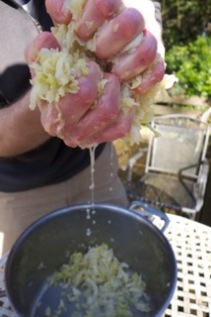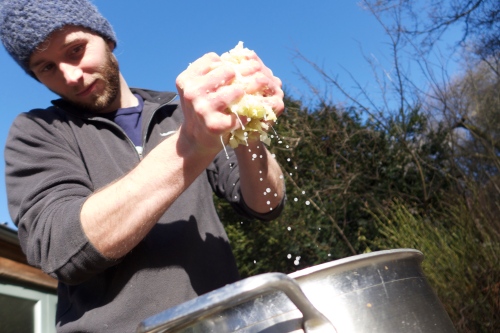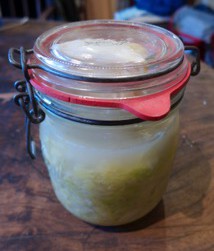Why kraut and kimchi are just as hipster as micro-brewing
Eating seasonally today is undoubtedly a good idea and has become very fashionable. It is always exciting when strawberries and asparagus come into season, but what about the humble cabbage?
For our ancestors, eating seasonally was a necessity. Living with the seasons didn’t mean noticing when your bag of apples comes from Kent instead of Kenya. It meant putting down a store of produce in the summer to last through the winter months.
If sauerkraut is stored properly it can last up to two years; the cabbage must be submerged under the level of the brine and refrigerated for long keeping. Sauerkraut is a wild ferment. Lactic acid bacteria are present in the vegetable, which means you don’t have to add a culture to get it going (as with sourdough).
Captain cabbage
Captain James Cook knew the importance of fermented foods. He prevented his crew from getting scurvy (vitamin C deficiency) by stocking his vessel with sauerkraut.
We are 8% less likely to catch a winter cold virus by eating fermented food
With this in mind, it feels somewhat hypocritical going to the supermarket for an organic cabbage and a pot of sea salt to make my ferment. Cabbage can be bought all year round so why not just eat it steamed or in coleslaw?
Why should I eat Kraut and Kimchi?
- It contains pro-biotic bacteria which aid digestion
- It makes vitamin B in vegetables more accessible for our bodies to digest
- Cabbage is rich in vitamin C
- Sauerkraut contains glucosinolates – proven to have anti-cancer activity
- It has a lovely flavour
 While we’ve lost the imperative to store fermented food for winter and long voyages by sea, the benefits of eating fermented food remains the same.
While we’ve lost the imperative to store fermented food for winter and long voyages by sea, the benefits of eating fermented food remains the same.
According to a recent survey, we are 8% less likely to catch a winter cold virus by eating fermented food. The connection between healthy gut and healthy immune system is clear.
Like the kimchi, when making kraut the cabbage needs salting – both for flavour and to slow down the lactic acid bacteria. While the cabbage is brined for kimchi, it is dry salted for sauerkraut. I added two heaped teaspoons of sea salt to finely chopped cabbage, then mixed it in with my hands. After bruising the vegetables until their liquid could be wrung out, I packed the kraut – and all the liquid – into a clean kilner jar.
This is a very simple sauerkraut, just cabbage and salt. While this is makes for a tasty kraut, I like adding juniper berries, fresh herbs, caraway seeds and all sorts of other vegetables to the mix for variation.

